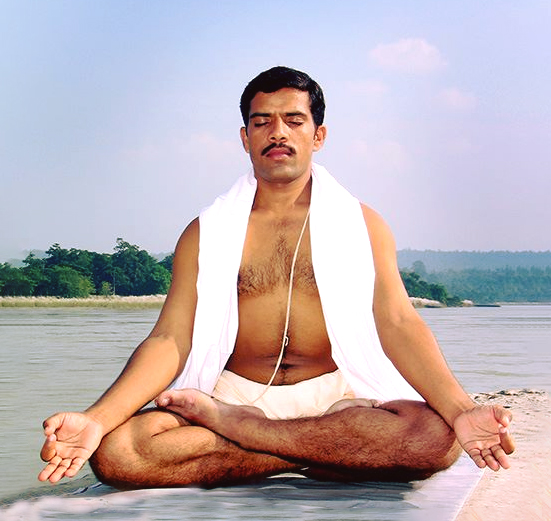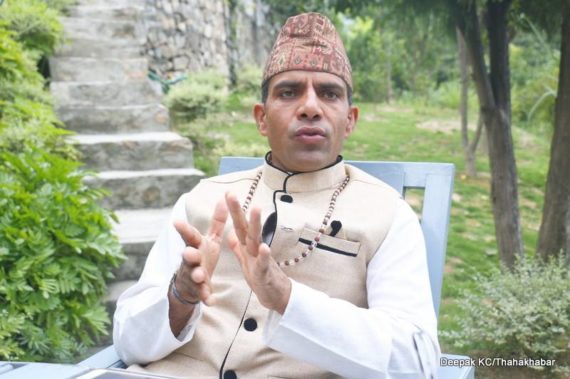Dr. Chintamani represents and embodies a wealth of knowledge and insight into the practice of yoga. He has been connected with yoga science for over 18 years and has completed two master’s degrees. PhD in yoga science and anatomy are two main certificate among them.. They teach a diverse range of classes, including children’s yoga, yoga for the elderly, yoga for youths. And most popular yoga teacher training courses for all who want to know about yoga.
In 2012, he was the first yoga teacher in Nepal to be honoured by the President of Nepal on Education day with the Nepal Vidyabhushan ‘KA’. A year later, he set up the ‘Nepal Yoga Retreat’ introducing a new dimension of spiritual tourism to the country.
Following in its success, he set up the ‘Nepal Yoga Academy’ a year later. Which now consistently overturns a new batch of around 20 new yoga teachers each month. The center is also home to specialized yoga publications and documentaries promoting and teaching the essential foundations of Sanatan Yoga.
Few Question with Dr. Chintamani Guruji regarding Yoga
When did you start practicing yoga and why?
Dr. Chintamani Gautam first real introduction to yoga began during certificate level when I was around 20 years old. I had been told by Drs at the time that I would need glasses as my eyesight was slowly starting to decline. Happened to be staying at a hostel where I met some great yogis and gurus who told me about yoga based exercises I could try to strengthen my eyesight.
I began practicing their recommendations on a daily basis and within two months my eyes were fine! It’s from then that I realised what a powerful tool yoga can be. Yoga can literally cure problems and for me, and so many before me, it is the best lifestyle management.
As my practice grew, I could manage my stress levels better, my own health improved and my general wellbeing was great. This incident may have been small but was a huge turning point in my life which eventually brought me to where I am today.
How is yoga important for youth?
Youth is the source of energy but the issue with young people today is that they are attracted to things which distract from how to utilize that energy in the best possible way. A lot of time and energy is spent by young people on distractions from the world around them rather than what is already with them. Yoga teaches discipline, time management, concentration, focus, health care and an improved sense of self. Yoga is so important for young people so that they can fully understand this from a young age.
People usually imagine a yogi as a person detached from society and completely immersed in his or her practice. Is it possible to combine regular everyday life and practice deep yoga?
This is actually a huge misconception because a successful person has to integrate the key five types of discipline (physical, mental, emotional, social and spiritual) into their ‘everyday life’ in order to reach a higher level. There is no need to be detached from the outside or ‘everyday’ world in order to practice yoga.
Yoga is a discipline and a lifestyle and therefore adapts to existing life. It is something that is suitable for everyone and has no limitations. In fact, in today’s age, with increasing levels of stress and demanding workloads, it is essential to practice yoga in order to gain a better understanding of reality. Yoga teaches control over one’s life no matter the circumstance, we need yoga now more than ever.
These days youths are more inclined towards Zumba, aerobics, kickboxing etc that helps to keep them fit. Is yoga still necessary after doing these activities?
Dr. Chintamani says Of course. All of these exercises are helpful but create stiffness and rigidity in the body which eventually leads to joint pain. There are benefits to all kinds of exercise but there are also adverse effects. In order to remove them, asana, pranayama and meditation are essential.
We can see that many foreigners come to your yoga centre from abroad, what about Nepalese youth?
The amount of Nepali locals who come to practice here are very limited compared to the amount of westerners. In my opinion, it all comes down to cultural differences. Westerners are in a position to consider their mental, physical and spiritual health as well as their own working and living environments.
They are looking for peace and happiness in their lives to step away from their hectic and modern lifestyles. Here in Nepal we are a developing country and so the priority tends to be on career development, finances and housing, with personal health coming as a bit of an afterthought. Through my work with colleges, schools and universities I hope that I can bring the yoga practice to the Nepali people. Then make it a little bit more accessible by overall people.
What’s your advice for students on yoga?
I have been teaching students for over twelve years now and consistently see the benefits that a regular practice can bring. When students adopt the yogic lifestyle they gain concentration and patience whilst learning to deal with distractions which leads to better study. Yoga gives students the tools to focus on their health and lifestyle which provides a better appreciation of life.
To get maximum benefits from the practice I would recommend that students practice for an hour a day. It is important to find balance between studying and time to focus on individual wellbeing. Yoga is the best way to improve mental, physical and spiritual wellbeing in the most well rounded way.
What are some of the challenges you’ve experienced as a yoga teacher and believer?
At the moment Dr. Chintamani think the biggest challenge is the nature of the modern world. The way in which technology plays such a huge part in the lives of young people. With social media and the individual need for such a huge online presence. It’s difficult to keep the students attention and focus on a traditional and effective practice.
Students are distracted and lack discipline in terms of their practice and their interest in yoga and what it can do for them. Having said that, at our school and retreat centre we are constantly striving to find new ways to bring the practice to the students. We are active on social media pages and like to keep in touch with past and present students online. And through the means of technology to keep yoga relevant in a constantly evolving world.
Do you have any words of wisdom for our students?
The main advice Dr. Chintamani would give is that the ‘karma yoga’ practice should be the priority above all others. This means that when we work without expectation or an end goal, we will get good results. Yoga is helpful in maintaining this mindset, particularly amongst students who are constantly striving to do better within their studies and school life.
Students are the pillar of our nation and carry a huge responsibility. When thinking about the future of their generation and our country. The yoga practice is a reminder and constant inspiration that the only thing necessary for success. It is contained within the self and not obtained from anything external.




